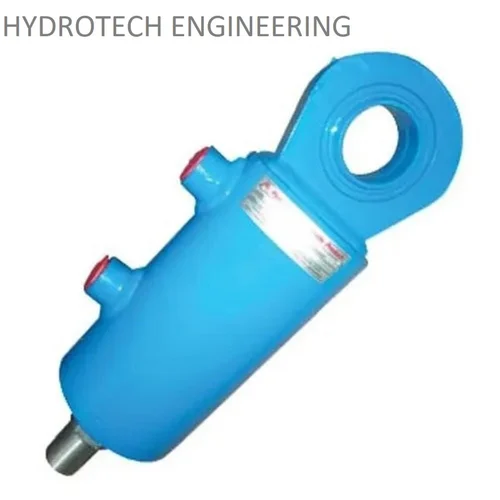Welded Design Rear Clevis Hydraulic Cylinder
₹14,000.0
| Minimum Order Quantity | 01 Piece |
| Power Source | 10 Ton |
| Usage/Application | Industrial |
| Stroke | 200 MM |
| Capacity | 11-40 Ton |
| Material | Steel |
| Brand | Techhydro |
| Max Pressure | 250 Bar |
- Description
- Additional information
- Reviews (0)
- Q & A
- Sustainability Remark
- More Offers
- Store Policies
- Inquiries
Being a remarkable enterprise in this domain, we are engaged in offering Welded Hydraulic Cylinder.
Additional Information:
- Production Capacity: 50 NOS
- Delivery Time: 2DAYS
| brands | Techhydro |
|---|
You must be logged in to post a review.
Q & A
Hydraulics can be considered sustainable when implemented and operated in an environmentally conscious manner. Here are some factors to consider regarding the sustainability of hydraulics:
Energy Efficiency: Hydraulic systems can be highly efficient when properly designed and maintained. Efficient hydraulic components, such as pumps and motors, can minimize energy losses and improve overall system performance. By reducing energy consumption, hydraulics can help lower greenhouse gas emissions and minimize the environmental impact.
Resource Conservation: Hydraulic systems typically require fluids to transmit power. It is important to use environmentally friendly hydraulic fluids that are biodegradable, non-toxic, and have a low environmental impact. Some alternatives to traditional hydraulic fluids include bio-based or synthetic oils, which can reduce the ecological footprint of the system.
Lifecycle Considerations: When considering the sustainability of hydraulics, it is crucial to evaluate the entire lifecycle of the system. This includes the manufacturing, installation, operation, and disposal stages. By adopting sustainable manufacturing practices, using recyclable materials, and implementing proper maintenance and end-of-life disposal methods, the overall sustainability of hydraulic systems can be improved.
Leak Prevention: Hydraulic systems should be designed and maintained to minimize leaks. Hydraulic fluid leaks can have negative environmental impacts, including soil and water contamination. Regular inspections, preventive maintenance, and the use of high-quality seals and fittings can help reduce leakage and improve the sustainability of hydraulic systems.
Waste Management: Proper management of hydraulic system waste, such as used fluids and filters, is essential for sustainability. Recycling and proper disposal methods should be employed to minimize environmental contamination and maximize resource recovery.
Alternative Technologies: While hydraulics can be sustainable when implemented correctly, it is important to consider alternative technologies when appropriate. In some cases, electric or hybrid systems may offer better energy efficiency and reduced environmental impact compared to hydraulic systems. Evaluating the specific requirements and constraints of each application can help determine the most sustainable solution.
In summary, the sustainability of hydraulics depends on various factors, including energy efficiency, resource conservation, lifecycle considerations, leak prevention, waste management, and the consideration of alternative technologies. By adopting environmentally friendly practices and technologies, hydraulic systems can contribute to a more sustainable future.
General Inquiries
There are no inquiries yet.



Reviews
There are no reviews yet.